Photo post of the week
In which we visit the Bodmin & Wenford Railway
This week: it’s mostly trains

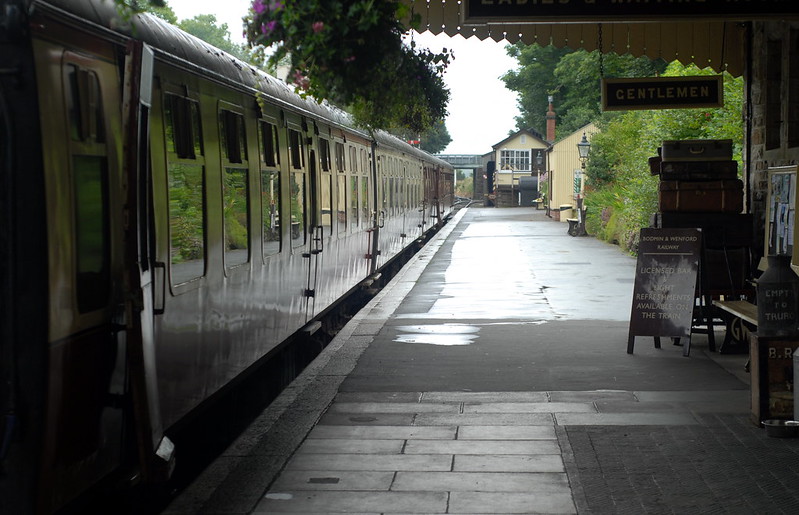



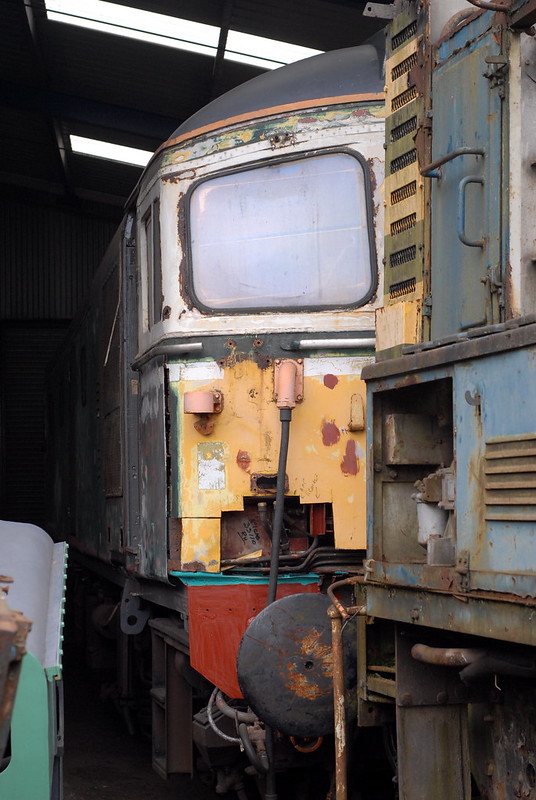

A homage to loading screens.
In which we visit the Bodmin & Wenford Railway
This week: it’s mostly trains






In which we lament the demise of vinyl
Ah, farewell then, Woolworths. Well … maybe. Certainly my local shop is still soldiering on, as I assume the rest are.*
It’s maybe a sign of how the chain’s going, though. I last shopped there a few weeks ago – picking up a gift voucher for K’s niece – and it was a strange experience. Because my local Woolworths doesn’t seem to have changed for a long, long time. Everyone else on the high street has shiny displays; Woolworth’s here is a step back in time. Slightly worn shelving that wouldn’t have looked out of place in my grandfather’s newsagents twenty-five years ago; everything piled up on it without much thought. Worn linoleum. No fancy ceiling or light fittings: bare plaster and unshaded fluorescent tubes are fine for Woolworths. If the shelves had been emptier, I’d have thought maybe a wormhole had decanted me into Moscow, circa the Andropov years. I almost expected to find carrier bags bearing the 70s coil-of-wool logo that I remember from childhood.
Personally, I still have a little bit of affection for the place. I’d never shop there, not any more, but once upon a time I did. Back when I was a teenager, it was the first place I ever bought music from; my first port of call at first; and then, as I knew more, the place I would come to flick through the 7″ singles and buy ones that had just dropped out of the charts. When they stopped selling vinyl, in about ’95 or so, I stopped going.
I almost typed there: “if you told a teenager today that Woolworths…” – and then I stopped and deleted it, because it made me feel old. Strange to think, though, that people today have completely forgotten Woolworths was once the best place to buy singles, back when Apple were a failing computer company** and portable music meant songs taped off the radio. Nowadays, it isn’t the best place to buy anything. Still stocking vinyl would hardly help, in this decade, but looking a bit smarter might. If they didn’t look like they’d furnished the place with other people’s cast-off shelves, it would be a start.
* A bit different to when the Fopp/Music Zone chain fell over: one day they stopped taking card payments, the next the shops didn’t open, and that, then, was that. Or, indeed, the Dutch ISP Aramiska, which gave its customers a few hour’s warning before they ceased operating with no explanation.
** People forget today that the first Apple Mac was a commercial disaster, so much so that its champion, Steve Jobs, got fired from the company partly as a result. I recommend reading any of the many books about the development of the Mac and the Apple company in the early 80s.
In which we can't complain
This post was originally written down the other day, in a notebook, sitting in a cafe with K. Post follows:
I’m not sure why, but I can’t bring myself to complain in shops. Maybe it’s a British thing. Maybe it’s a shy geek thing. Nevertheless, whatever the reason, I can’t bring myself to complain in shops, which is why I am sitting here in a cafe drinking herbal tea, instead of the cold drink I was planning to enjoy. I don’t normally drink herbal tea, at all, and sometimes when I’m thirsty I like to have a cold drink then a hot drink, close on each other’s heels. The server misunderstood me – it is a chilly day, after all, and I received two hot ones.
No doubt the server – who sounds American and therefore almost certainly would complain if she found herself in my situation – would not mind if I’d said: hang on, I meant the cordial, not the herbal tea. But, being shy, and geeky, and English, I said nothing, and decided that I would enjoy the tea even though I hadn’t meant to order it. Fortunately, it’s actually quite nice.
In which we are taxed
Fifteen per cent? It’s like a flashback to my childhood!
To be honest, I have to say: it makes a nice change to have progressive taxation for once. Taking taxation off a flat-rate tax and onto an income-dependent one is a pleasant change: the people who have the money should be taxed on it. The fairest tax of all would be on disposable income; it would, sadly, be entirely impractical and unenforceable.
In which we ask Mario Reading why he refuses to admit he was wrong
If you’ve been reading regularly, you might remember my post from last week about noted Nostradamus-interpreter Mario Reading, in which I idly wondered aloud if he plans to correct some of the predictions he published a few years ago which have, amazingly, failed to come true. I wrote him an open letter, asking if he’ll be issuing errata for his book Nostradamus: The Complete Prophecies For The Future, in which Mr Reading – sorry, Nostradamus’s – predictions have turned out to be rather wrong.
Having had no response, though, I thought I’d drop him a line, to make sure he’d seen what I wrote. After all: if someone was writing about me, I’d want to know. He’d written a blog post about searching the web to see what people were writing about him; so this is what I wrote:
Funnily enough, I posted something on my own blog about one of your books the other day. I’d been planning to write to you directly, but given the lack of direct contact details on your website – entirely understandable, I’ve had email addresses become completely unusable due to junk mail – I decided to write it as an open letter to you instead. I wonder if you’ve come across it yet.
Which was all quite respectable and polite, I thought. He doesn’t get many comments, so I thought he’d appreciate one.**
It was held for moderation, which is normal. However: it never appeared. He’s had another comment since, which has passed moderation;*** mine has disappeared. I can only assume that Mario Reading doesn’t want his blog readers to see my post, for some reason. And that he doesn’t particularly feel like answering my letter to him.
Now, Mario Reading’s blog and mine are both driven by the same software, WordPress. And I know, from using it, that when you log in to a WordPress blog’s admin pages, you get taken to a page called the Dashboard. Which, among other things, gives you a little list of other blogs that have recently linked to your own site.*
I’m in the habit of checking my site logs regularly; so, when someone clicks on a link that takes them to me, I notice it. So I know that: someone who has access to Mario Reading’s blog admin pages saw that link on his Dashboard page, on the 17th. So presumably, he’s aware of what I wrote, but can’t be bothered to answer me.
Mr Reading, if you’re reading, which I assume you will do eventually: I’d appreciate an answer to my questions. Do you intend to keep Nostradamus: The Complete Prophecies For The Future on sale even though many of the things predicted in it haven’t happened? Do you intend to issue errata for it? You could do that on your blog easily enough, after all.
Meanwhile: if I’m going to be so critical, I may as well have more to go on than a vague memory of Reading being interviewed on the telly a few years ago. So his book’s on order from the local library; so we can see exactly what Mario Reading – sorry, Nostradamus – predicted would happen in the world over the past couple of years, and whether he was right about it.
* It pulls the data from Google Blog Search, although older versions of WordPress used Technorati.
** Because he uses WordPress, you can tell how many comments he’s had submitted; it gives every comment a number, and the number gets put in the URL. My comment on his website was number 3.
*** The first one to appear on his blog, in fact! And the fourth to be submitted – the first after mine.
Update, 1st September 2020: As now mentioned at the bottom of the post I linked to at the start, Mario Reading died in 2017, and his website and blog were taken offline, so I’ve removed the now-dead links.
In which it's still summer
As it’s Friday again, some more summer photos.
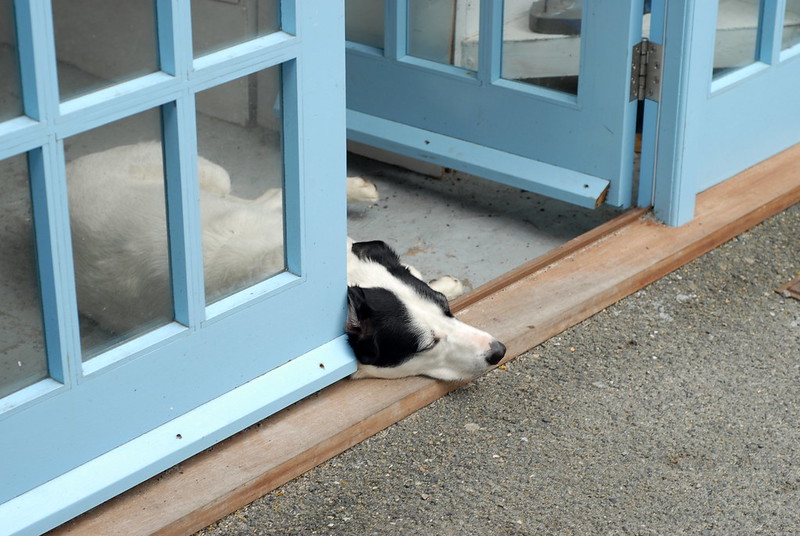

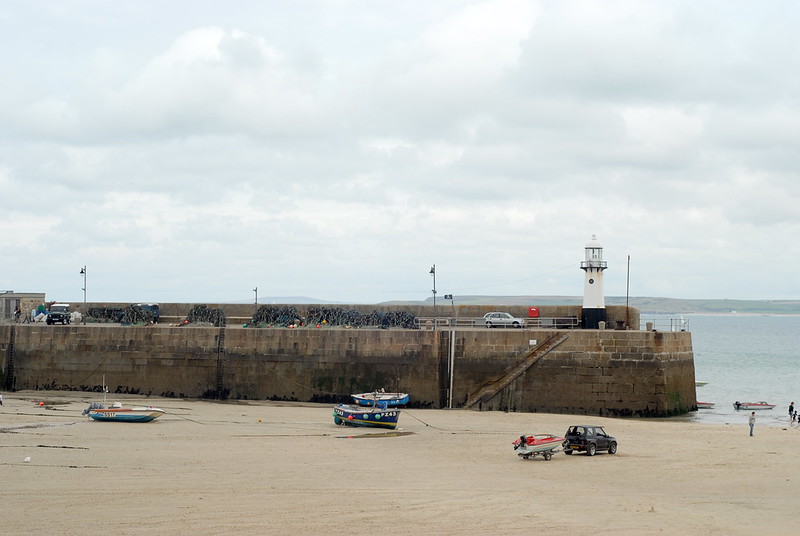
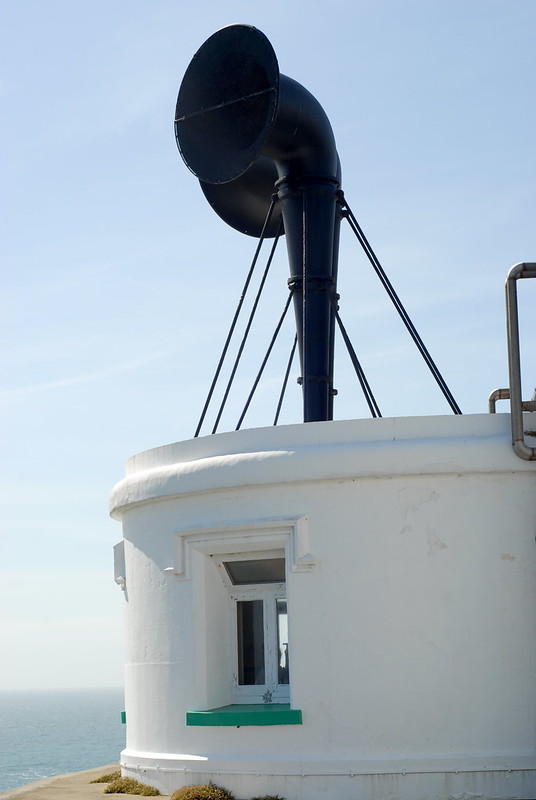
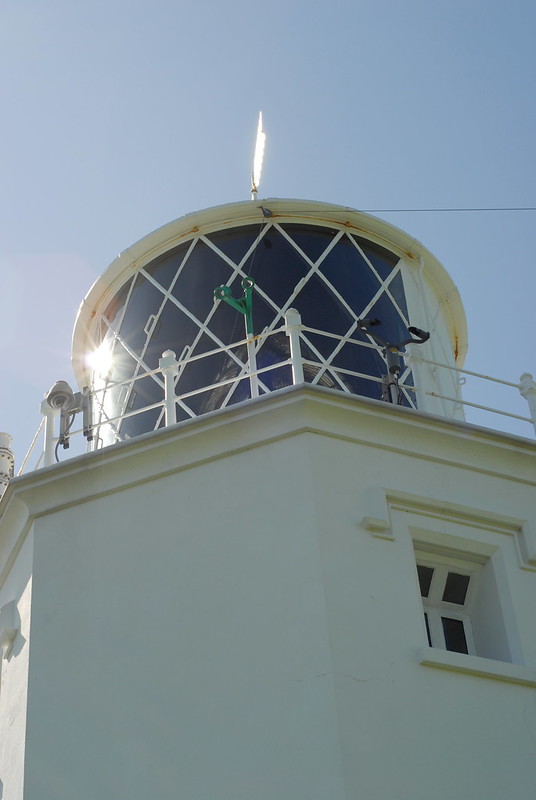
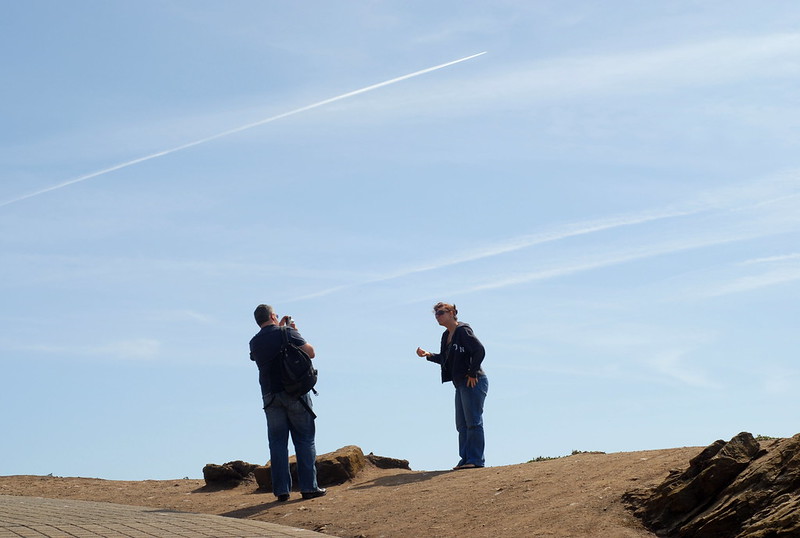
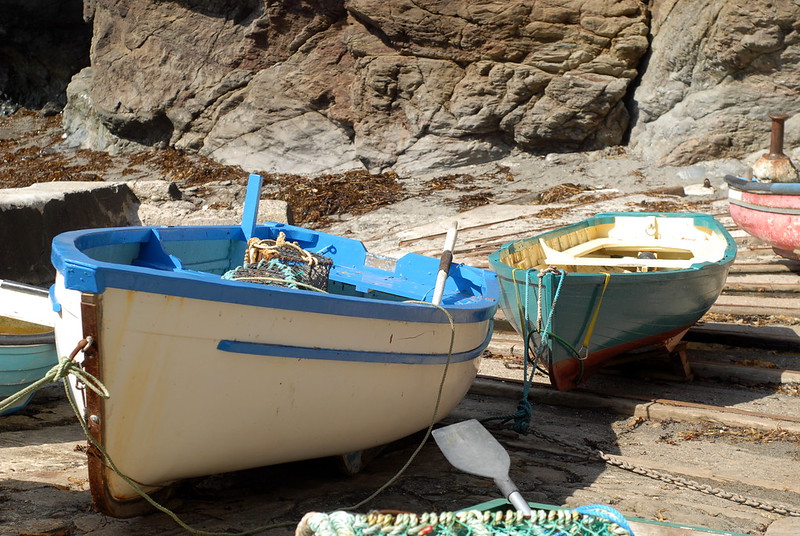
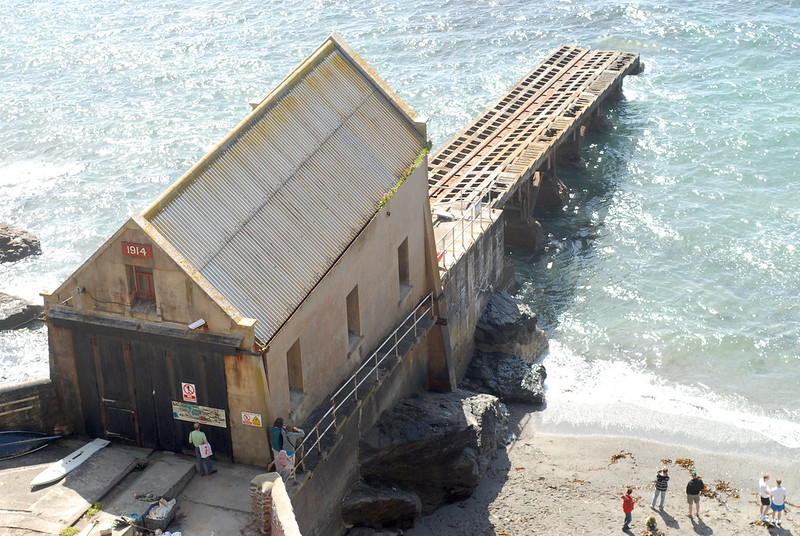

In which we go to a Death Cab gig
I wonder, sometimes, how much music reviewers know about the bands they review. Some, it’s obvious, are fans. Some are at least knowledgeable. But there must be some, surely, who turn up knowing nothing and leave knowing less.
We went to see Death Cab For Cutie play the other night. “Ah,” I thought, “I’ll write about them for the blog.” It’s the second time we’ve seen them this year, having seen them already a few months back at the Manchester Apollo. I even recognised some of their tunes. But, nevertheless, I still don’t feel qualified to have an opinion about them.
The stage felt slightly odd at Sunday’s gig. A big, wide stage, the band set themselves up at opposite corners of it, with a vast empty area in the middle through which their bass guitarist romped, jumping about wildly. We were pressed up against the front barrier, so I amused myself by watching the local photographers jumping about in pretty much the same way, grabbing photos before they had to leave. Nice cameras, coincidentally all Nikons. I wasn’t entirely sure one of them had chosen the right lens – it looked a bit slow for the job. But I was supposed to be listening to the music.
They’re not the best band if you want onstage banter. They launch straight from one song to the next without leaving any applause room, sometimes stopping briefly to change guitars. We learned: they think that British and American Pizza Hut branches are just as bad as each other. We learned that the band learned: swimming in the harbour is not a good idea.* And that, as far as banter went, was that.** Their music, though, is good. They’re a tight band, even though they practically needed telescopes to see each other on stage. People don’t necessarily go for talk, do they? They go to listen to the music. Benjamin Gibbard danced about on the balls of his feet, a roadie in the wings paying out and reeling in his guitar lead as he went, to stop him tripping up on it; not knowing the music, I liked watching the little details like that. After the very full set – twenty-odd songs, including a 4-track encore, not just stuff from their current album – we went home filled up with feedback and our ears ringing.
* Possibly they saw the same thing as I saw the other day: the Big Issue seller whose pitch is on Pero’s Bridge, standing and pissing off the bridge into the water, about 10ft below.
** unless you count the Barack Obama campaign sticker on one of Benjamin Gibbard’s guitars. If you don’t say much, even a single sticker can count as a statement.
In which we wonder how the Misguided Bus will fit along Winterstoke Road
Time to return to the West Of England Partnership’s misguided Bristol Guided Bus project,* I think, although Councillor Bradshaw never did reply to my last email. The rude chap. In the meantime, I’ve been poking my nose around the Winterstoke Road area.
Whilst I was doing so, the Evening Post, as I’d done, interpreted the scheme’s maps to read that a new bridge was going to be built over the harbour. It apparently isn’t, although you have to look at the maps very very carefully to spot this. Which is a sign of how poor this whole “consultation exercise” is, if the main local press outlet is allowed to get the wrong impression like that. In the same story, the partnership admitted that they have only a vague idea of the cost of the scheme. And then, Cumberland Road was closed for emergency repairs, due to a burst water main. At present the road’s mostly used by cars, with relatively few buses. What’s going to happen to it when there are buses putting much, much more stress on it every few minutes?** Moreover, this, like any other traffic incident on either Cumberland Road or Coronation Road,*** froze the rush-hour traffic trying to get south out of the city centre. What’s going to happen when the westbound side of Cumberland Road is taken up by bus lane?
Anyway, pressing on. Winterstoke Road, where the new bus road is due to run alongside the railway to Portbury. This railway line was only used occasionally for the best part of thirty years, before being rebuilt for heavy coal traffic from the docks. When that happened, it was singled, so there’s plenty of space alongside the line. Plenty of space for a new road, you might think. Let’s look.
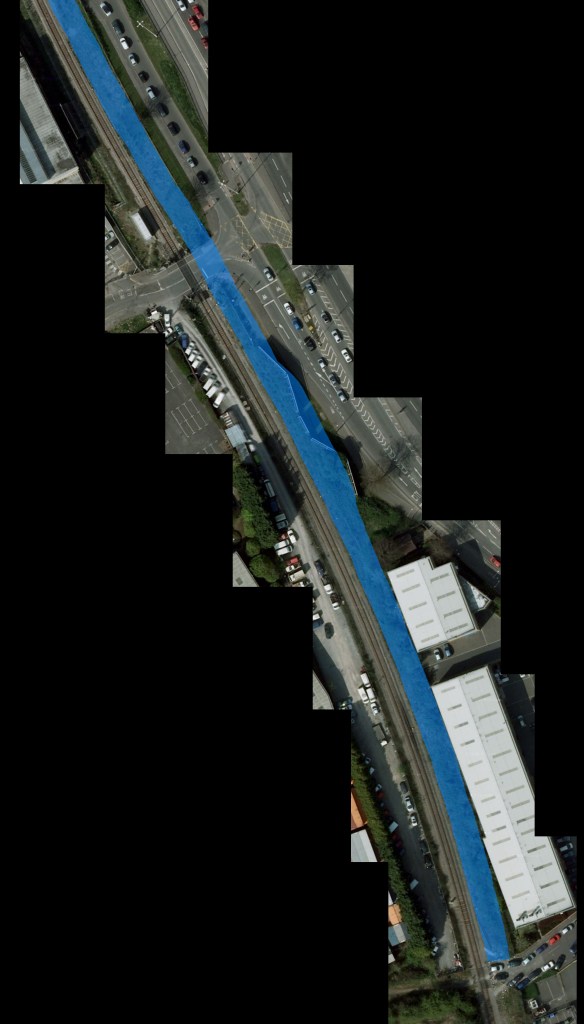
Not much room there at all, really. That blue band is the width of two guided busways, with a narrow kerb at the side for access and evacuation. I’ve drawn it right up to the edge of the still-active railway; and it takes up, well, pretty much all the space available. No room at all for the promised cycleways alongside the road. I’ve widened it a bit at the site of the Ashton Gate stop shown on the maps;**** if it’s any bigger than I’ve drawn, it then starts to swallow up the existing (and rather poor-quality) cycle/footpath too.
What’s going to happen to that building alongside the line? The partnership’s simulation video shows it on the ground and unaffected by the busway – which, at the bottom of that picture, is due to ramp up onto a flyover and, at the top, execute a sharp turn across the railway and off to the left. Is there really enough room for that, though? Without scraping the side of the building every time a bus passes? I’m not very convinced.
* You know, the one they like to call “Bus Rapid Transit”, or just “Rapid Transit”, to gloss over the fact that it’s nothing more than a slightly-altered bus route.
** Some useful information here: the stress caused on a road varies with the fourth power of the axle loading, more or less. In non-maths language: if you double the weight on a wheel, that wheel will cause 16 times as much damage to the road. A car’s axle loading isn’t likely to be above 1.5 tonnes even for something big; a bus will be more like 9 or 10 tonnes on its heaviest axle. That six-times weight multiple turns into a 1296-times damage multiple. So, a stream of cars with one passing every couple of seconds – supposedly the safe separation, according to the Highway Code – causes roughly the same amount of road damage as one or two buses per hour. That’s a very rough back-of-envelope calculation, but gives you an idea of the scale of difference we’re talking about. Trucks, of course, are even worse.
*** such as the fatal motorbike accident at the Coronation Road/Dean Lane junction a few weeks ago.
**** using the size of the Leeds guided busway stops as a guideline
In which we muse what book to abandon reading next
Getting this website going again, and posting things regularly, I was thinking that maybe I should resurrect Books I Haven’t Read, an ongoing series of posts in which I reviewed books that I hadn’t managed to finish reading, and briefly discussed why. This was on the grounds that reviews of bad books are often more interesting than reviews of good books;* many book reviewers probably get away without reading the whole thing; and if I’m going to talk about something, I may as well be honest about whether I’ve read it or not. Hence, Books I Haven’t Read, which annoyed at least one author who discovered it and couldn’t resist responding.**
The problem, though, is that it’s been a while since I’ve managed to fail to finish a book. The only candidate at the moment is Robert Graves’ The White Goddess, which has to be described as a masterpiece, even though in many ways it is mistaken and wrong-headed.*** It’s also a very hard read, and I’ve got such a small way into such a long book that I feel I can hardly do it justice.
Everything else I’ve started reading, I’ve finished reading. Books that I’ve already told you I haven’t read, I’ve since completed. I’ve even got to the stage where I’m considering going back to some of the books I’ve written about here, getting them out of the library, and finishing them off. Which is a good thing, I suppose; but it leaves me at a loss for things to criticise. Maybe I should try to be a lazier reader.
Things might be solved by a book I came across in the local Oxfam bookshop the other day: Christopher Hill’s The World Turned Upside Down: Radical Ideas During The English Revolution. I’ve always been slightly confused by the history of the Civil War – or the Great Rebellion, or the English Revolution, or the Wars Of The Three Kingdoms – see even the list of names it’s been called are confusing, or whether there’s an “it” to start with. I’ve also never really got on with Marxist historians that well, so I’m thinking that there’s a good chance it’s going to completely baffle me sideways and leave me ranting about Ranters and Levellers.**** Let’s see how far I manage to get.
* For the ultimate good review of a bad book, the exemplar has to be Slacktivist‘s ongoing page-by-page and scene-by-scene reviews of the Left Behind books and movies, which many of you have probably already heard of.
** not to mention, a second response about how I was too pathetic to deserve a response. Hurrah!
*** much like Graves’ Greek Myths, which is somewhere close to being a standard work on the subject – even though much of the author’s commentary on the myths is now extremely outdated, given that it was based on a poor understanding of outdated archaeology and anthropology.
**** Now I have heard of Levellers – but not, I suspect, the ones that were around in the seventeeth century.
In which we photograph the deep blue sea
I grew up not far from the sea. I didn’t go down to the beach or the seafront very often, but I was close enough that you could see out to sea from the top deck of my school bus. I’ve always felt good by the sea.*
On the other hand, I grew up in an area where the sea is the colour of weak milky tea. So it’s always nice to go somewhere and find that the sea can, actually, sometimes be storybook blue.**
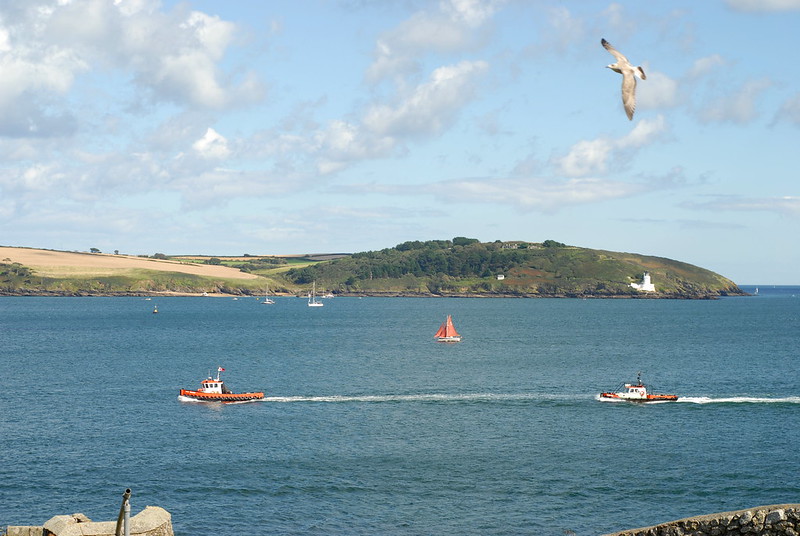
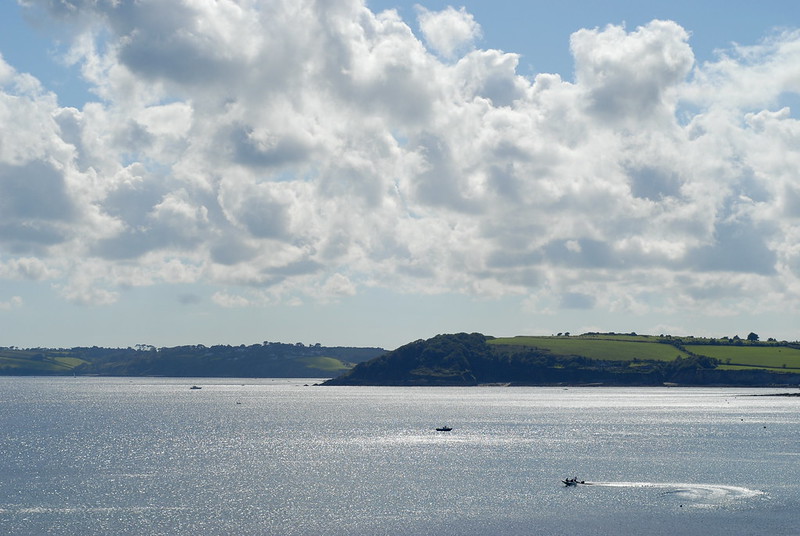
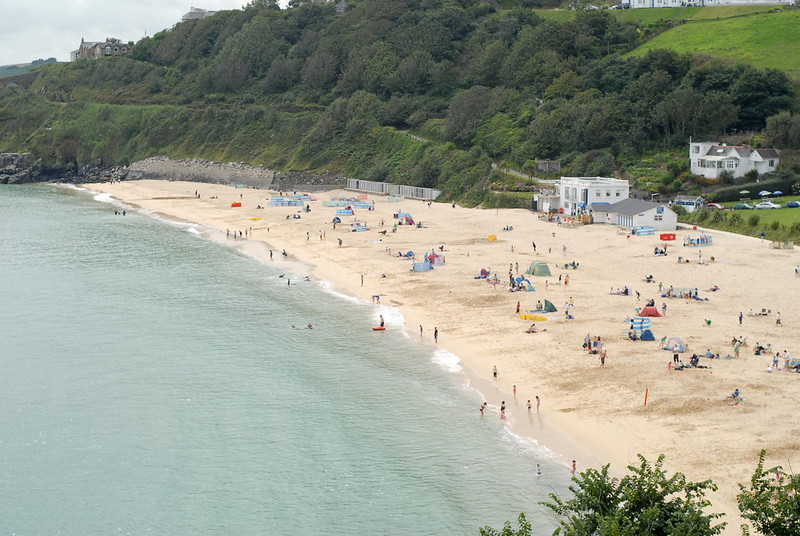
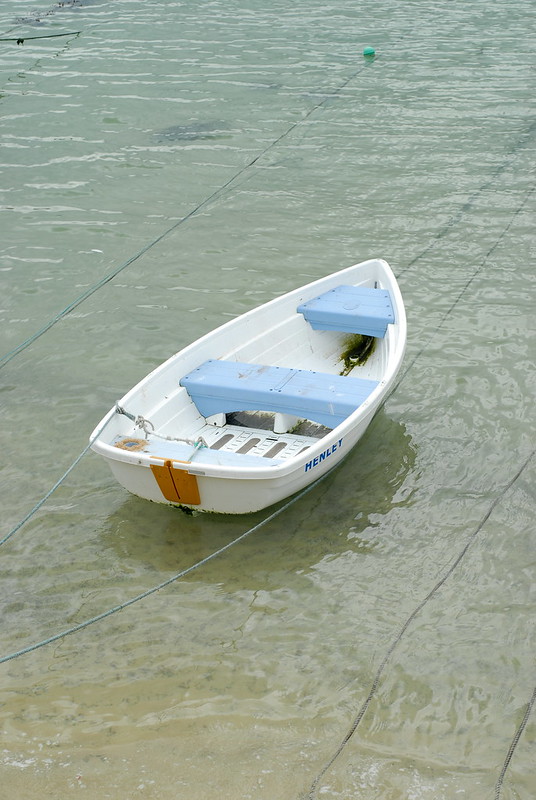
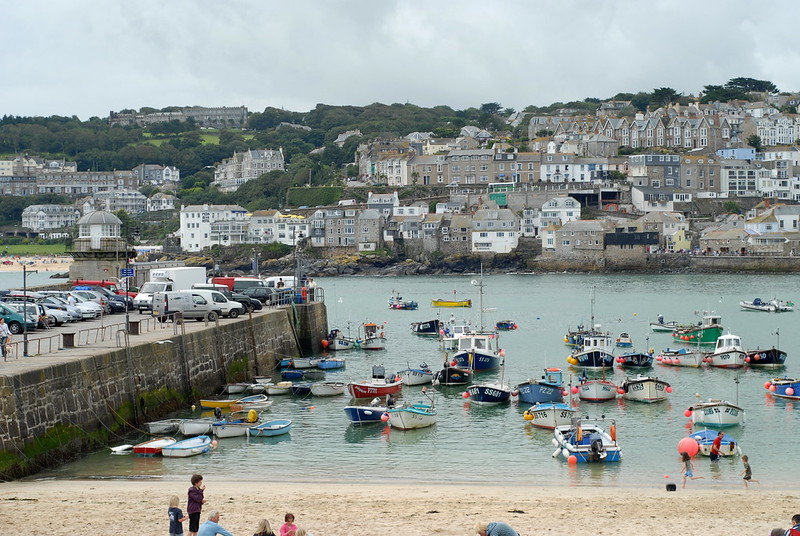
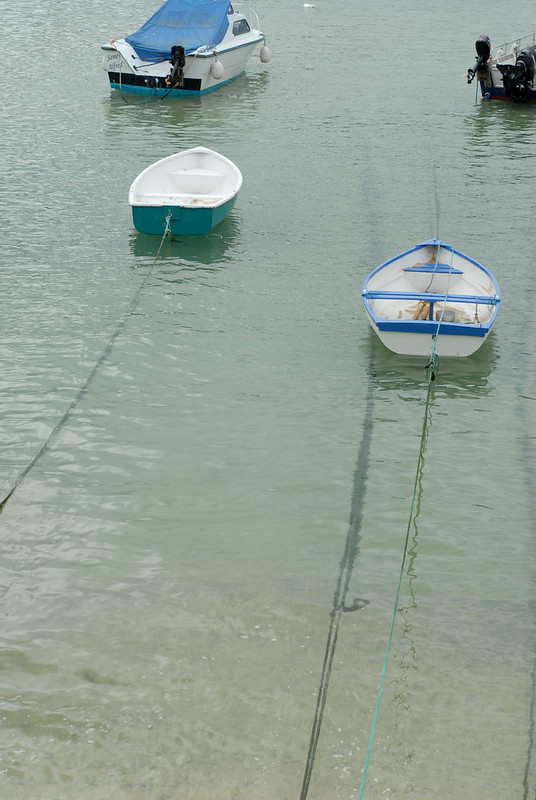
In other sea-related (or, at least, tidal) news: the mystery words on the shore of the Avon, which we spotted last weekend and posted about, have been identified: an artwork to highlight litter in the sea, by an artist called Pete Dolby. Thanks to Liz for writing and letting me know.
* You could argue some sort of genetic memory, because my mum’s family’s descended from a bunch of 19th-century Cornish fishermen (and smugglers, no doubt), from Looe and Polperro. On the other hand, my dad’s family’s from Derby, which is as unmaritime as you can get.
** Pure water is, as a matter of fact, very very slightly a pale blue colour. You can see it, just about, if you run a bathful of water in a white bath. That’s not the main reason the sea can look blue, though. And different cultures have seen it different ways; the Homeric adjective for it is “wine-dark”, and you know how dark Greek wine can be. I’ve heard that the ancient Greeks didn’t quite distinguish between blue and green in the same way as we do; but I don’t know enough Greek to tell you how true that is.
 Newer posts »
Newer posts »